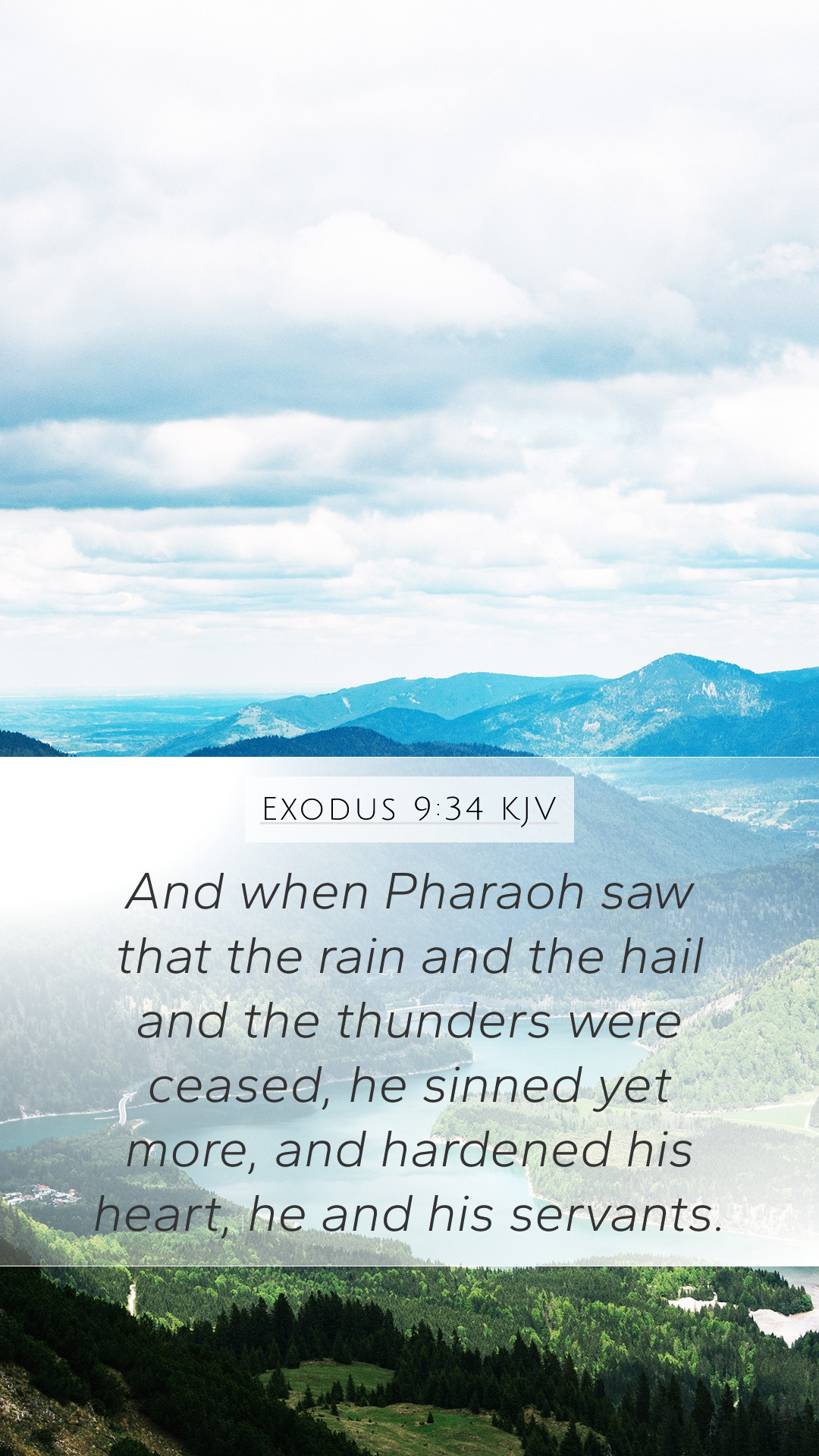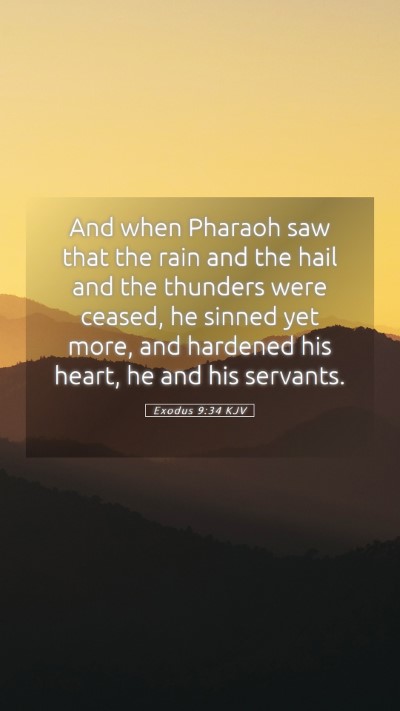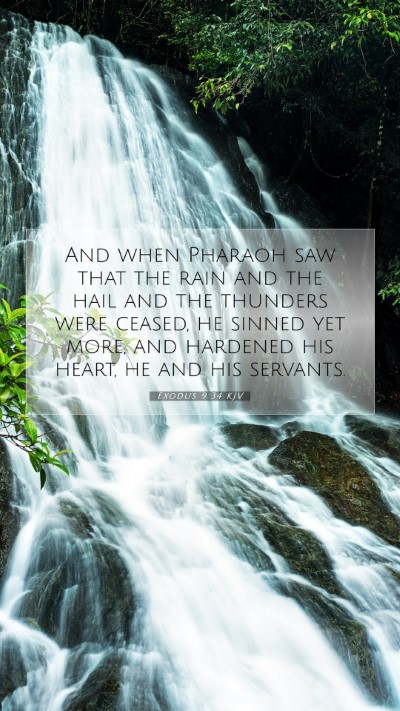Bible Verse Meaning: Exodus 9:34
Exodus 9:34 states: "And when Pharaoh saw that the rain and the hail and the thunders were ceased, he sinned yet more, and hardened his heart, he and his servants." This verse emphasizes another layer in the story of the plagues of Egypt, illustrating how despite experiencing divine signs, Pharaoh continued in his defiance against God.
Summary of Interpretations
This verse is significant for various reasons:
- Pharaoh's Hardening Heart: The narrative shows Pharaoh's stubbornness despite witnessing God's power through the plagues. Matthew Henry notes that Pharaoh's heart was hardened, indicating not just a physical but also a spiritual blindness to impending judgment.
- Consequences of Unrepentance: Albert Barnes emphasizes the consequences of rebellion against God's will. Pharaoh’s refusal to repent highlights the dangers of disregarding divine warnings.
- Nature of Human Responsibility: Adam Clarke points out that although God hardens hearts as a part of His righteous judgment, individuals still have a choice—demonstrating the balance between divine sovereignty and human responsibility.
Bible Verse Commentary
Deciphering this verse through various commentaries can provide valuable insights for Bible study groups or online Bible studies:
- Matthew Henry's Commentary: Henry reflects on the recurring theme of hard-heartedness; he argues that Pharaoh's heart was hardened in response to God's direct intervention. This serves as a reminder of human tendencies to ignore divine instruction.
- Albert Barnes' Notes: Barnes elaborates on the concept of sin and punishment. He asserts that Pharaoh's continued sinning, even after witnessing miracles, signifies the depth of human depravity without divine intervention.
- Adam Clarke's Commentary: Clarke provides theological insights, noting that the hardening of Pharaoh's heart serves as a critical point for understanding the nature of sin and the consequences of relentless rebellion against God.
Understanding Scripture
Understanding this scripture requires looking beyond surface-level meanings. The hardening of Pharaoh's heart is a significant element of the Exodus narrative that invites deeper Bible study insights, particularly in understanding themes of:
- Divine Sovereignty: The sovereignty of God in human history is prominent. God demonstrates His power over earthly rulers, reminding believers of His ultimate authority.
- Human Stubbornness: Pharaoh's actions reflect humanity's tendency to resist change and stay in defiance against divine truth, which is pertinent in Bible study lessons.
- Judgment: Both immediate and eternal judgments arise from disobedience. This passage highlights the serious gravity of leading others into sin and rejecting God's grace.
Application of the Passage
In applying the meaning of this Bible verse to daily life, believers are called to reflect on their own responses to God's promptings. Key applications include:
- Self-Reflection: How often do I ignore God's voice or warnings in my life? This verse encourages individuals to examine their responses to God's commands.
- Openness to Change: Unlike Pharaoh, believers should be willing to soften their hearts and allow God to guide them towards repentance and growth.
- Intercession for Others: Recognizing the dangers of hardening one’s heart toward God should inspire prayer for the unreached and those who resist divine truth.
Historical Context of Exodus 9:34
For a thorough Biblical exegesis, consider the historical and cultural context at the time of Moses and Pharaoh:
- Pharaoh ruled Egypt during a period when gods were worshipped, and the plagues represented a challenge to the Egyptian deities, illustrating God's supremacy.
- The events of the Exodus signify God's covenant relationship with Israel, and Pharaoh's arrogance showcases a stark contrast between divine mercy and human rebellion.
Cross References
To enrich your understanding of Exodus 9:34, consider the following cross-references:
- Romans 9:18: "Therefore God has mercy on whom he wants to have mercy, and he hardens whom he wants to harden."
- Exodus 7:13: "And Pharaoh's heart became hard; he would not listen to them, just as the Lord had said."
- Proverbs 28:14: "Blessed is the one who always trembles before God, but whoever hardens their heart falls into trouble."


